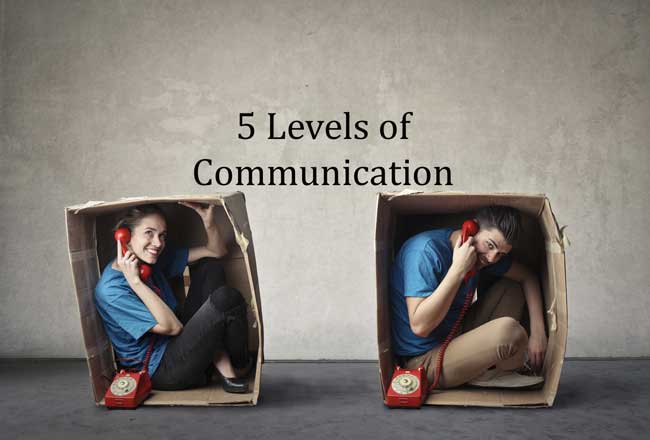How to Improve Communication Skills in a Relationship?
Do your conversations with your partner often lead to misunderstandings or arguments? Effective communication is the cornerstone of a healthy and fulfilling relationship, yet it’s something many couples struggle with. Whether you’re living together or navigating a long-distance relationship, mastering communication can help you build a stronger bond. In this article, we’ll explore the importance of communication, identify signs of poor communication, and provide actionable tips to improve your communication skills as a couple.
The Importance of Communication in Relationships
Good communication is so crucial that renowned marriage psychologists, Dr. John and Julie Gottman, can predict whether a relationship will last based on a few interactions. They found that couples who engage with each other emotionally tend to stay together, while those who don’t often drift apart.
Benefits of Effective Communication:
- Increased Closeness and Intimacy: Regular, meaningful exchanges foster emotional connection, bringing you closer to your partner.
- Positive Relationship Sentiments: By eliminating negative reactions and increasing positive interactions, you’ll create a more harmonious relationship.
- Better Problem-Solving and Conflict Resolution: Good communication promotes teamwork, making it easier to address and resolve conflicts.
- Growing Trust: Open and respectful communication builds trust, allowing you both to feel secure in expressing your thoughts and feelings.
Identifying Signs of Poor Communication
Before you can improve your communication, it’s essential to recognize where things might be going wrong. Common signs of poor communication include:
- Aggressive Speech or Raised Voices: Interrupting or speaking over your partner.
- Personal Criticism or Name-Calling: Attacking your partner’s character instead of addressing the issue.
- Bringing Up Unrelated Past Events: Using past mistakes as ammunition in current arguments.
- Sarcasm or Jokes: Deflecting blame or avoiding accountability.
- Passive-Aggressive Behavior: Expressing anger indirectly, such as through silence or avoidance.
- Holding Grudges: Bottling up emotions and letting them fester.
- Assuming Your Partner’s Thoughts or Feelings: Jumping to conclusions instead of asking for clarity.
- Avoidance: Brushing things under the rug or walking away from conversations without resolution.
Reflect on your past interactions and consider which of these behaviors you might need to address. You can also ask your partner for feedback to gain further insight.
9 Tips to Improve Communication Skills in a Relationship
Improving communication requires a shift in focus from proving a point to understanding each other’s perspectives. Here are nine practical tips to help you communicate more effectively with your partner:
1) Create a Safe Space and Time to Talk
Effective communication starts with the right environment. Ensure that you have a quiet, distraction-free space where you can both be present—physically, mentally, and emotionally. External distractions, including stress, can quickly derail a conversation.
- Outcome: Clearer communication and fewer misunderstandings.
2) Set Clear Goals and Intentions
Before diving into a conversation, especially about important topics, set clear goals. Establish shared purposes, values, and priorities to keep the conversation focused and constructive.
- Outcome: Faster resolutions without unnecessary detours into past grievances.
3) Listen to Both Sides of the Story
Stay curious and open to your partner’s perspective. Often, what we assume to be true may not be the full story. By considering both sides, you can better understand each other and identify where miscommunication occurred.
- Outcome: A more comprehensive understanding of the situation.
4) Approach Conversations with Empathy
Empathy is crucial for effective communication. Enter the conversation with a mindset of understanding your partner’s feelings, rather than focusing solely on your own.
- Outcome: A more emotionally connected and understanding relationship.
5) Give Your Full Attention
Undivided attention is one of the most valuable gifts you can offer in a conversation. Listen not just to the words, but also to the emotions behind them. Use eye contact and non-verbal cues to show that you are fully engaged.
- Outcome: Deeper connection and better understanding of each other’s feelings.
6) Acknowledge Your Partner’s Viewpoint
Even if you don’t agree with your partner’s perspective, it’s essential to acknowledge it. This doesn’t mean you have to concede, but validating their feelings helps create a positive feedback loop and promotes healthy dialogue.
- Outcome: Both partners feel heard and valued, leading to more constructive conversations.
7) Pay Attention to Body Language
Non-verbal cues, such as facial expressions and posture, are critical in communication. Ensure that your body language aligns with your words. For example, maintain open body language when discussing sensitive topics.
- Outcome: Your partner feels more engaged and understood.
8) Speak Lovingly and Respectfully
The tone of your voice can significantly impact how your message is received. Avoid raising your voice or speaking harshly, especially during disagreements. Focus on maintaining a loving and respectful tone, even when discussing challenging topics.
- Outcome: Reduced tension and a more loving atmosphere during conversations.
9) Open Up and Be Vulnerable
Effective communication requires honesty and vulnerability. Don’t expect your partner to read your mind—express your thoughts and feelings openly, using “I” statements to avoid sounding accusatory.
- Outcome: Increased emotional intimacy and better mutual understanding.
Summary and Additional Recommendations
Improving communication in a relationship takes time, patience, and practice. If you find that you’re still struggling, consider seeking help through couples therapy or marriage counseling.
Remember, every interaction shapes your relationship. By focusing on positive, constructive communication, you can strengthen your bond and ensure that your relationship continues to grow.
Recommended Reading
For further insights on improving communication and relationships, consider the following books:
- The 5 Love Languages: The Secret to Love that Lasts by Dr. Gary Chapman
- Crucial Conversations: Tools for Talking When Stakes Are High by Kerry Patterson
- Emotional Intelligence: Why It Can Matter More Than IQ by Daniel Goleman
These resources offer additional tools and strategies to help you build a more fulfilling and lasting relationship.




